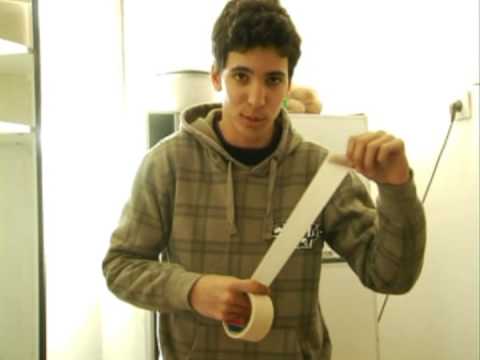Israelis Lee Ziv, 28, and Hadas Balas, 25, are organizing a non-political food and clothing drive, as an act of compassion, to help the people of Gaza. Photo credit: Elad VazanaWho are the victims in Israel’s recent war on terror with Gaza? Obviously it?s not the people in high positions calling the shots, but the civilians, and the mothers and children — from both sides — who have lost loved ones during this conflict, which still has no clear resolution in sight.
Two young Israeli women, a student and a peace activist, got fed up with politics. On behalf of the people of Israel, they decided to take it upon themselves to organize aid for those in Gaza a couple of weeks ago. And the nation’s response has been beyond anything they could have imagined.
Since putting out a call for blankets, clothing and food for Gaza via email, Lee Ziv, 28, and her partner Hadas Balas, 25, have already delivered seven large trucks of supplies to the people in Gaza, with more to come. Confirmation has also been received that the relief is getting to those in need, and is not being held hostage by Hamas militants, as some Israelis feared.
Long-term plans to provide ongoing aid are also in the works: “Thousands of people came to donate things from their homes,” says Ziv. “And they gave money, asking what we could buy with it,” she tells ISRAEL21c.
Parents of soldiers in Gaza donate to the appeal
“I can say that there were a lot of mothers and fathers who had soldiers inside Gaza at the time who were donating stuff. A woman who had a missile land on her house in Sderot, donated food. There were young people and old, and they were mostly Israelis,” she says.
Ziv, a peace activist working with the Sulha Peace Project, and the United Religions Initiative, and Balas, a student, were able to appeal to the public because they represented the people, and not an agency with political goals. “We are working beyond the rules, with the common goal of ensuring the right to live to those who are alive,” said their email plea.
“It’s between people to people, without politics inside it,” says Ziv. As an example, one woman who gave aid to ship to Gaza, had a son who was sent by the Israeli army to fight there: “She felt terrible that something could happen to her boy. She felt the need to help another mother in Gaza, maybe one whose son has died,” says Ziv who has seen “a lot of compassion” from the Israeli side.
“It’s not that we don’t understand our need to protect ourselves,” she says. “But we know something is terrible there [in Gaza] and a lot of people have died.”
Balas and her friend, a student at the Sapir College in Sderot, called Ziv, a couple of weeks ago and told her that they had to do something about the humanitarian crisis in Gaza.
Since announcing their plans to collect aid via an email that went viral, the women have appeared on TV, radio shows, and in newspapers. Even the Arabic news channel Al Jazeera has expressed an interest in covering their story.
Messages of hope in peace, in Arabic, along with the aid
After reaching other human rights organizations, the messages and the act of donating to Gaza spread across Israel like wildfire. “I thought we might get two truckloads,” Balas says. “I wasn’t expecting 10.”
The truckloads of aid have gone into Gaza, with handwritten messages of peace from the donors translated from Hebrew and English into Arabic.
The messages were translated by Elad Vazana, a peace activist who has worked with the Sulhita Youth Project, to connect youth from Israel and the Palestinian Authority, who organized his contacts, and had the messages, translated to Arabic in a swift operation.
He was at the Gaza-Israel border with Balas and Ziv last week seeing that the first shipment went through safely, along with the special notes he?d helped create.
“They were messages of hope and faith,” says Ziv. “They received them already and now they want to send us back messages.”
Among those organizations that helped in the collection were the Zionist youth movement?s organization, Hashomer Hatzair, and the Greek Catholic Church’s Beit Hachesed in Haifa. Kibbutz Kfar Aza, which has been attacked by Qassam missiles from Gaza, offered its storage facilities before the shipments went out to Gaza.
“It’s about people,” says Ziv. “We all want to share this country. The Jewish people will stay here. The Muslims and Christians will stay here. For me it’s like planting seeds for peace.”
(Donations to their efforts can be coordinated with Lee Ziv: leeluziv@gmail.com)













